Don’t underestimate the power of Trump’s tweets. The U.S. president has shown how the world superpower can destroy the world, or global stock markets to be precise, without launching nuclear missiles. His 102-word tweets erased close to US$2 trillion of the equity markets worldwide after indicating he will hike duties on US$200 billion worth of Chinese products to 25% from 10%.
But his tweet is also a double-edged sword. When the DJIA (Dow Jones Industrial Average) plunged more than 350 points on Friday, President Trump quickly launched new tweets that conversations with China over trade will continue and his relationship with President Xi Jinping remains strong. As a result, the stocks staged a spectacular reversal and the DJIA finished the day 114 points higher instead.
Amusingly, Trump made a new claim that the US-China trade talks were “candid and constructive”. He also said the newly fresh imposed tariffs on US$200 billion worth of Chinese goods “may or may not be removed”. Prior, as the stocks were staring at losses midday of trading, Treasury Secretary Steven Mnuchin said China trade talks had ended for the day and were “constructive.”
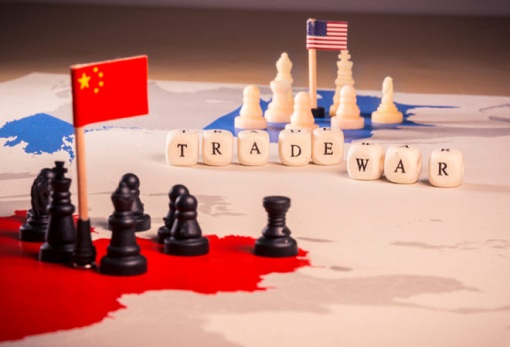
Earlier in the morning, Trump said there’s “absolutely no rush” on a trade agreement with China, a comment he sent to the Twitter platform after he slapped the higher tariffs – from 10% to 25% – on US$200 billion worth of Chinese goods. He talked as if free money is to drop from the sky simply because China would pay the 25% tariif, which will then go directly to the U.S. Treasury.
Yes, claiming victory, Donald Trump declared that his latest round of import tariffs on Chinese goods will force China to pay “US$100 billion” to the U.S. Treasury. What type of grass the confused U.S. president has been smoking? It seems he doesn’t understand how a tariff works, or pretends to be ignorant. He consistently throws big figures to impress his supporters.
Tariffs are used to restrict or limit imports by increasing the price of goods and services purchased from another country (in this case China), making them less attractive to domestic consumers (in this case Americans). Such tool is typically used by a government to raise revenue, protect domestic industries, or exert political leverage over another country.
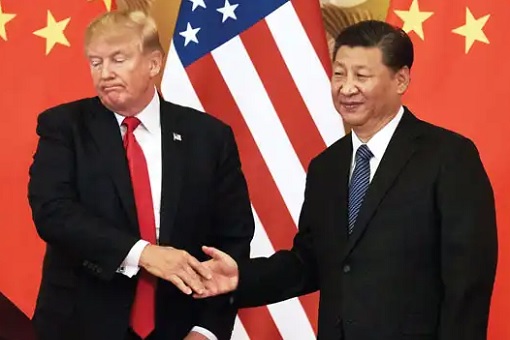
The goal is to make foreign-produced goods more expensive. In the same breath, it will make domestically produced goods seem cheaper and more attractive. However, in this case, American companies, in order to be more competitive and profitable, have already outsourced jobs and goods to foreign workers in foreign countries like China, eliminating jobs for Americans.
So, when higher tariffs are imposed, the burden of the tariffs will fall on buyers of Chinese-made products – the American consumers. Trump fails, or deliberately refuses to, tell his supporters that the higher tariffs are to be paid by Americans (importers), not the Chinese (exporters). The only thing that concerns China is the decrease in its exports to the U.S. because of pricier products.
According to estimates from Oxford Economics, the U.S. economy would be about US$100 billion smaller by 2020 if Trump administration imposes 25% tariff on all imports from China. Essentially, that could end up costing every American household about US$800. Hence, it is the American consumers, not Chinese, who would be paying the US$100 billion to the U.S. Treasury.

Even if Trump was merely bluffing about going full steam in slapping another 25% tariffs on US$325 billion in Chinese goods that have not yet been taxed, the Friday’s tariff hike to 25% from 10% on US$200 billion of U.S. imports from China will effectively cost the American economy US$62 billion by next year. That alone translates to US$490 per household.
In other words, Americans will pay the extra US$490 per household from Friday (May 10) onwards to the U.S. Treasury and in extreme case scenario where the US-China trade war goes full-blown, it will be US$800 per household. And we haven’t talked about China retaliation, which, when combined with the extreme scenario mentioned, would lead to 360,000 fewer jobs being created.
Besides, if it’s really true that Trump could easily squeeze US$100 billion from the Chinese pockets, why stopped at just 25%? Why not hike it to 40% to get US$200 billion free money, or even higher for that matter? Why should Trump even show indecisiveness by saying he “may or may not remove” the new tariffs on the US$200 billion worth of Chinese goods?
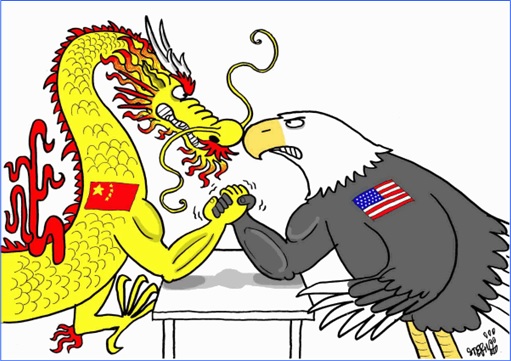
Sure, Trump’s tweets can push up the stocks as well as pull it down. However, the fact that the president would go back on its attacks to calm the Wall Street with empty rhetoric or vague remarks may have provided the Chinese with the silver bullets. Trump’s Achilles heel appears to be the American stock markets. He seems to have lots of bark, but very little bite.
On Saturday, Trump launched some new tweets again. He urged China to act now on trade or risk facing a worse deal if negotiations continue into a second term, which the president boastfully said he will win (2020 presidential election). He also claimed China was “beaten so badly” in recent trade negotiations that Beijing wanted to wait until after the 2020 election, hoping a Democrat would win and offer them a better deal.
Make no mistake. The Chinese will not kowtow to the Americans by changing its laws to satisfy US’ demands. That was why the Chinese had deliberately deleted all the commitments in each of the 7 chapters of the draft of trade deal, including theft of U.S. intellectual property and trade secrets, forced technology transfers, competition policy, access to financial services and currency manipulation.
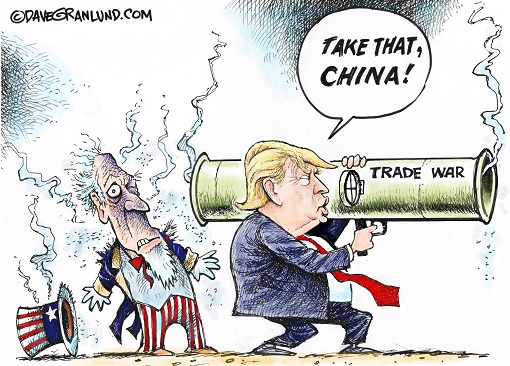
Calling Trump bluff, President Xi Jinping is convinced that President Donald Trump badly needs a “win” that would reduce the deficit and create U.S. jobs before 2020 elections. To agree to Trump’s demands at this hour can be described as strategically foolish. The U.S. president talks too much, so much so that he sounds like a snake oil salesman at some night markets.
Other Articles That May Interest You …
- How Trump’s 102-Word Tweets Erased US$2 Trillion Off Global Stock Markets
- Trade War Could Continue – Financial Chaos Again After Trump Threatened China With New Tariffs
- Trade War Could End Soon – Trump May Even Drop Charges Against Huawei To Strike A Deal
- “You Cannot Crush Us” – Huawei Founder Warned About Shifting Investment From The U.S. To U.K.
- What Trade War? US Trade Deficit With China Hits Record High $323.32 Billion Last Year
- The U.S. To Officially Request Sabrina’s Extradition – But Canada Isn’t Happy Their Citizens Are Being Punished
- From Trade War To Political Kidnapping – Two Canadians Held “Hostage” As China Retaliates
- China Furious!! – CFO & Daughter Of Huawei Founder Arrested In Canada On Behalf Of The U.S.
- US-DOJ Investigates Huawei For Violating Iran Sanctions – It’s All About Business, Stupid!!
- China Invasion – Top 10 American Iconic Brands Now Owned By Chinese

|
|
May 12th, 2019 by financetwitter
|


|

|

|

|

|

|






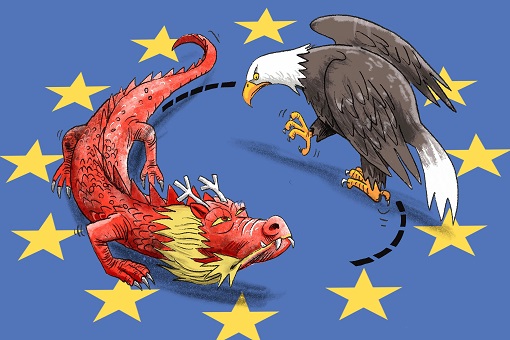





















He must be making a lot of money from the stock market.
Whatever happened to the colossal hedge funds? They must have lost billions, if not trillions of dollars. Yet not a squeak. The losses should be enough to bring down everything and yet the press is not making a single comment on them.